Mike Royko 50 Years Ago Today: Mike tangles with Ald. Fred Roti
Weekly compilation December 27, 1971 - January 2, 1972
To access other parts of this site, click here for the Home Page.
Why do we run this separate item, Mike Royko 50 Years Ago Today? Because Steve Bertolucci, the hero of the serialized novel central to this Substack, “Roseland, Chicago: 1972,” lived in a Daily News household. The Bertolucci’s subscribed to the Daily News, and back then everybody read the paper, even kids. And if you read the Daily News, you read Mike Royko. Read the daily Royko briefing Monday-Friday on Twitter, @RoselandChi1972.
December 27, 1971
The awards nobody wants
“Every few years, this column gives out annual awards,” writes Mike. “Most years we don’t, because nobody deserves any.”
But Mike forges ahead and dishes out awards anyway. Here are two:
“Good Government: To Ald. Fred Hubbard, who suddenly disappeared. Nobody knows where he went. May he set an example for all other aldermen.”

Father of the Year goes to Mayor Daley for reading a poem about sons at the July 21 City Council meeting: “To press my lips against the fair cheeks or brows of my youngs sons, so long have I stooped down...”
“Then he named Ald. Tom Keane’s son to the city’s zoning board, later slated his own son for the Legislature, and one of his son-in-laws became president of one of real estate tycoon Arthur Rubloff’s real estate firms. He is a big daddy.”
Some background on why Mayor Daley read that poem, “Sons,” by Grace Noll Crowell, from the podium in City Council chambers. It wasn’t a sweet, tender moment but part of a raging tirade against University of Illinois at Chicago political science Professor Dick Simpson.
This is a deep dive for those who are up for it, because if you’re interested, you just have to see the long excerpt from Mayor Daley’s tirade. If not, skip ahead to Mike’s December 28th column.
Simpson was already a UIC professor but also alderman of the 44th ward in 1971. He was an independent progressive alderman, so he drove Mayor Daley crazy. Simpson covers Daley’s tantrum in his fascinating book “Rogues, Rebels, and Rubber Stamps: The Politics of the Chicago City Council from 1863 to the Present,” and so does Studs Terkel in the book’s preface.
Here’s Studs, starting the preface with Daley on July 21, 1971:
“Dick Simpson was one of those reform aldermen and political opponents who got under Boss Richard J. Daley’s skin. In 1971, he got Daley so mad that the mayor-for-life almost had a stroke right on the podium. I remember that moment, as a choleric mayor aimed his roundhouse punches in the manner of W.C. Fields at that ‘college perfesser,’ Dick Simpson.”
Simpson rose in Council that day to object to Mayor Daley appointing Ald. Tom Keane’s son to the Zoning Board of Appeals, as Mike notes in today’s column.
Since Keane was the second most powerful person in the city, behind only Mayor Daley, Simpson admits he was hesitant to object, knowing it would be taken as a personal insult to Keane, and would mean all Simpson’s future legislative proposals would get killed by Keane.
But appointing Keane’s son to the zoning board was so nuts, Simpson had to speak up. As Simpson recounts, Thomas Keane Jr. was “both the son of Daley’s city council floor leader and the Vice President of Arthur Rubloff Co., the largest real estate firm in Chicago.” So this appointment “was not only a case of nepotism but also favored the city’s largest real estate firm on a board that directly controlled zoning. Since zoning determined the value of [Keane Jr.’s] firm’s real estate properties, the younger Keane’s membership on the Zoning Board of Appeals was fraught with conflicts of interest.”
So Simpson objected:
“I made a very short speech: ‘This appointment poses the problem of the faith of our citizenry in our city government. Why is it that members of the same family get appointments in several sections of government and only large firms seem to get representation on boards dealing with zoning and construction?’”
Which is when Mayor Daley interrupted:
“Who’s going to ask those questions and make those charges?” he barked.
“I replied, ‘My students will.’ Daley countered, ‘And you’ll encourage them.’”
Now other aldermen jumped up to defend Ald. Keane and Keane Jr. Finally Daley came back and read that poem. I’m assuming Mayor Daley didn’t keep a copy of the poem in his jacket pocket, so I guess he had some underling run and get it while the other aldermen were kissing Ald. Keane’s tush with their own speeches.
After reading the maudlin poem, writes Simpson, Daley “launched into the longest and most emotional tirade of his colorful career.”
Mayor Daley’s crazy tirade, quoted from Prof. Simpson’s book:
I hope the halls of all the great educational institutions will stop being places for agitation and hatred against this society. And talk about the young people! With their cynical smiles and their fakery and polluted minds, and the idea that I made this appointment because a man’s name was Keane and he was the son of a famous member of this council!
I made this appointment because I have known Tommy Keane, the boy I appointed, since he’s been a baby. And I know his mother, Adeline Keane, one of the greatest women I know, not only in this city but in any city in the United States….a fine Polish-American woman, who raised a fine boy. And should that boy be told by any professor or faker that he shouldn’t hold office because his name is Keane and she’s his mother?
Where are we going with this kind of society? Where are we going with these kind of educators? You are doing this to the young people of our country!….A teacher is supposed to be dedicated to tell the truth. What kind of truth is that?….
Let’s look at the record of the universities and what they are doing to the minds, is that what’s being told to them? I made the appointment because he is the son of the Chairman of the Finance Committee? ….That is what we have too much of in education today—hypocrites and fakers—afraid to face the truth, afraid to let the young people go into the combat of election contests.
They want to stand behind the cloak of a great university and tell us how wrong our country is, how wrong our society is, and they know nothing about it and they refuse to take any steps to correct it. They haven’t got the guts to tell what’s wrong.
That what’s being to taught today. And [Simpson] is not the only one. He’s typical of the large numbers in universities polluting the minds of the young people….and if this is the society in which we live, that we’re afraid to appoint our sons, or our nephews or our relatives or are afraid to appoint any member of our family because of what? Of fear of what might be said? Not the truth. But the fear.
Who creates fear? Who creates these phony issues? The very people we’re talking about. Let me say to you very frankly, if you’re a teacher, God help the students that are in your class, if this is what is being taught.”
Simpson notes that Mayor Daley’s face was purple with rage, and his staff actually was afraid their boss was going to have stroke. A one-hour recess was called in the meeting before they could get on with Council business, and even then, the meeting continued led by the president pro team rather than Mayor Daley.
But Mayor Daley won an award from Mike Royko, so well worth it!
Prof. Simpson continues to teach at UIC today. “Rogues, Rebels, and Rubber Stamps: The Politics of the Chicago City Council from 1863 to the Present,” is fascinating but admittedly may be a tad academic for general readers. “A Good Fight: Life Lessons from a Chicago Progressive” is a lighter, very readable account of Simpson’s life, from protesting segregated movie theaters as a youth in Texas, where he grew up, to his life in Chicago progressive politics.
Fun fact, one of my most treasured books is an autographed copy of “Rogues.”
December 28, 1971
The charge of the Light Brigade
Another of Mike’s occasional columns of “Letters, calls, complaints and great thoughts from readers”. We’ll go with one from Robert Davis of Chicago, a loyal supporter of Ed Hanrahan and Mayor Daley:
“Aren’t you (bleeps) ever satisfied? First you caused Edward Hanrahan to be dropped because of your constant carping about that shooting. Then when Judge Berg, a fine man, was put on the ticket to replace Hanrahan, you come up with that dirty story about phony names on his petitions.”
NOTE: For the fabulous story of Mike’s front page scoop that Machine flunkies spent a day forging signatures to get Traffic Court Judge Raymond Berg, Mayor Daley’s candidate to replace Hanrahan, onto the ballot, see December 21, 1971 in Mike Royko 50 Years Ago Today, and in THIS CRAZY DAY IN 1972. Well worth the clicks.
“I’m sure there was nothing wrong with those signatures. The Democrats wouldn’t have to forge names. When Mayor Daley ran, he got about 1 million names on his petitions. His organization wouldn’t have any trouble getting 20,000 for Berg, and you know it, you smart (bleep).”
Mike’s answer: “I’ve always wondered about the mayor’s petitions. If 1 million registered voters signed them, why did 200,000 of them not bother to vote for him in the election? Explain that, you bleep, you.”
December 29, 1971
Trusting Fred hard on Fred
“First of all, I’m not making this up.”
A tantalizing lede sentence indeed.
It’s about Mike’s gigantic scoop last week that Democratic machine flunkies spent most of a day forging signatures on petitions to get Mayor Daley’s chosen candidate for state’s attorney on the ballot, after Daley pulled his endorsement from indicted incumbent Ed Hanrahan on the day petitions were due.
Now there are several investigations into the allegedly forged petitions for Daley’s candidate, Traffic Court Judge Raymond Berg.
“One of the many names on the petitions is that of Mrs. Rose Orr, who lives at 215 W. 23rd St., in the famous 1st ward,” writes Mike.
Mike recounts that a young woman working on the petition investigation called Mrs. Orr as part of checking the petition signatures. The woman reported that Mrs. Orr said she did NOT sign any petition.
“I don’t sign my name to anything unless my son-in-law brings it around, and he didn’t bring anything around,” said Mrs. Orr.
Mrs. Orr’s son-in-law is Alderman Fred Roti.
“Now even the mother-in-law of a Machine alderman is denying she signed Berg’s petitions,” writes Mike. “See? I said you wouldn’t believe it, even though this is Chicago.”
Mike calls around looking for Ald. Roti. “He is not an easy man to find. The leaders of the First Ward, such as John D’Arco…are naturally shy. They never know when somebody will be handing them a grand jury subpoena.”
Mike usually specifically says the 1st Ward is controlled by the Chicago syndicate. Today he simply notes that Ald. Roti’s father, Bruno, “was a revered community leader, because of his achievements as a Black Hand terrorist.”
When Mike finally reaches Ald. Roti at home, Roti answers Mike several times with the phrase “I dunno.”
“Ald. Roti sounded like he was eager to have a discussion with his wife,” Mike concludes. “A man sometimes likes to talks to his wife about the things his mother-in-law says.”
December 30, 1971
Who’s villain in crime rise?
“In 1968, it was made perfectly clear why crime was increasing in the United States,” Mike states bluntly in his lede sentence.
“The blame was placed on Ramsey Clark,” Mike explains.
“Everybody knew he was the villain. If they didn’t know, they weren’t paying attention to Richard Nixon’s campaign. Clark was soft on sneak thieves, easy on embezzlers, gentle with gangsters, reticent with robes, flabby with fiends, fond of felons and mousy with murderers.”
When Nixon accepted the Republican nomination for president in Miami in 1968, he proclaimed, “If we are going to restore order and respect for law in this country, there is one place to begin. We are going to have a new attorney general of the United States…The wave of crime is not going to be the wave of the future in the United States.”
“But something appears to have gone wrong,” writes Mike. “People have gone on shooting and knifing each other, grabbing each other’s possessions, and these pursuits seem to be even more popular than they were in 1968.”
The FBI says crime has increased 6% overall, and violent crime has gone up 10%.
“The question is why?” asks Mike. “Can it be that Ramsey Clark wasn’t to blame in the first place?”
December 31, 1971
Mr. P. finally has his day
At the very end of this unusually long column, Mike awards his annual Man of the Year award to an anonymous “Mr. P.,” which stands for “Payroller.”
Mr. P. was among a group in the Cook County treasurer’s office who recently helped bundle $10,000 in tax collections in packets of $1,844, which went into canvas bags and finally to a Brink’s crew who brought it to Continental National Bank—all except one packet, which disappeared.
That’s fun, but what’s fascinating is Mike’s lead-in, a long rumination on the nature and life of the average patronage pencil-pusher in the County Building. The psychological profiling here is masterful. A sampling:
“In any big organization, the way of life of the men at the top bears little resemblance to that of those near the bottom. So it is with the Chicago Machine…
“The men at the top…have the power and prestige of their elective offices. They ride in limousines, are invited to the better clubs, sun their tummies in Palm Springs and Acapulco…
“…At the other extreme are the people you can see by taking a stroll through places like the County Building. They sit at their desks, stamping a paper, shuffling some forms, walking to the water cooler, trying to stay awake until quitting time..."
“The job is a reward for being a precinct worker. But even among precinct workers, they are not the elite. The best vote-hustlers get the jobs that bring them into direct contact with the citizen and his money: inspections, licensing, favor-dispensing…
“It would be easy to understand how the round-shouldered, sleepy-eyed, bored man at the desk might sometimes wonder where his career went wrong…Why is his closet bare of shoe boxes, and shoes too?” Mike never misses an opportunity to allude to Paul Powell.

“Was it luck or drive—or maybe a lack of opportunity?...They probably ask themselves the question posed by the uwritten city slogan”—which Mike composed—“’Ubi Est Mea,’ which means, ‘Where’s Mine?’”
Last sentence: “And for once in his life, Mr. P. may have been in the position to say: ‘Right here.’”
As we here all know, weekends could be sad for a Daily News family because Mike Royko wasn’t in the Daily News’ single weekend edition. So we look for Mike elsewhere on weekends.
This is an unusual detour for this item, but I can’t resist sharing something I found quite by accident on Traffic Court Judge Raymond Berg, who would never have come to our attention today were it not for Mike’s tremendous scoop about the Machine flunkies forging Berg’s voter petitions. Because of the petition scandal, Berg refuses to participate in debates during the primary election, and instead does goofy things like stating that he could beat up his two opponents because he used to box.
So now that Mike has brought Judge Berg to our attention, here’s a little background story to appreciate Mike’s Berg coverage all the more.
On August 12, 1970, Judge Berg presided as usual in his courtroom in Traffic Court. The Tribune ran an unbylined story about it on August 13 headlined “215 Parking Tickets Cost Him $5,375.”
The headlined case isn’t all that interesting, but it is the headline, so I’ll sum up: Charles Murphy, 25, of 5016 W. Madison St., accumulated 215 parking tickets in just two years, 1968-69. Berg ordered him to pay $25 per ticket, hence $5,375. Murphy claimed he was married and earned only $125 week. So Berg told him to pay $1,000 by Sept. 9, and the rest “in a reasonable time.”
The interesting part of the article comes under the subhead “Moment of Levity.”
It seems Clarke C. Edwards, a Roosevelt University student, appeared in Traffic Court over the summer in front of Magistrate Richard Le Fevour for 31 unpaid parking tickets. Le Fevour ordered him to write an essay about his tickets, and return on Aug. 12 to read it aloud to the court. Judge Berg simply had the luck to be presiding when Edwards showed up for his return performance.
“Edwards’ reading of his five-page essay, ‘My Kingdom for a Space,’ broke up the court,” reads the Trib article. “‘In the beginning,’ he began, ‘one man invented the wheel. On the opposite side of the world another man invented a ‘No Parking’ sign. These two items have been at odds since their creation.’”
“Judge Berg congratulated Edwards on his essay, lectured him on his parking habits, and dismissed the case.”
By the way, this feature is no substitute for reading Mike’s full columns. He’s best appreciated in the clear, concise, unbroken original version. Mike already trimmed the verbal fat, so he doesn’t need to be summarized Reader’s Digest-style, either. Our purpose here is to give you some good quotes from the original columns, but especially to give the historic and pop culture context that Mike’s original readers brought to his work. You can’t get the inside jokes if you don’t know the references. Plus, many columns didn’t make it into the collections, so unless you dive into microfilm, there are some columns covered here you will never read elsewhere. If you don’t own any of Mike’s books, maybe start with “One More Time,” a selection covering Mike’s entire career and including a foreword by Studs Terkel and commentaries by Lois Wille.
Do you dig spending some time in 1972? If you came to MIKE ROYKO 50 YEARS AGO TODAY from social media, you may not know it’s part of the book being serialized here, one chapter per month: “Roseland, Chicago: 1972.” It’s the story of Steve Bertolucci, 10-year-old Roselander in 1972, and what becomes of him. Check it out here.
To get MIKE ROYKO 50 YEARS AGO TODAY in your mailbox weekly along with THIS CRAZY DAY IN 1972 and new chapters of the book—
SUBSCRIBE FOR FREE!





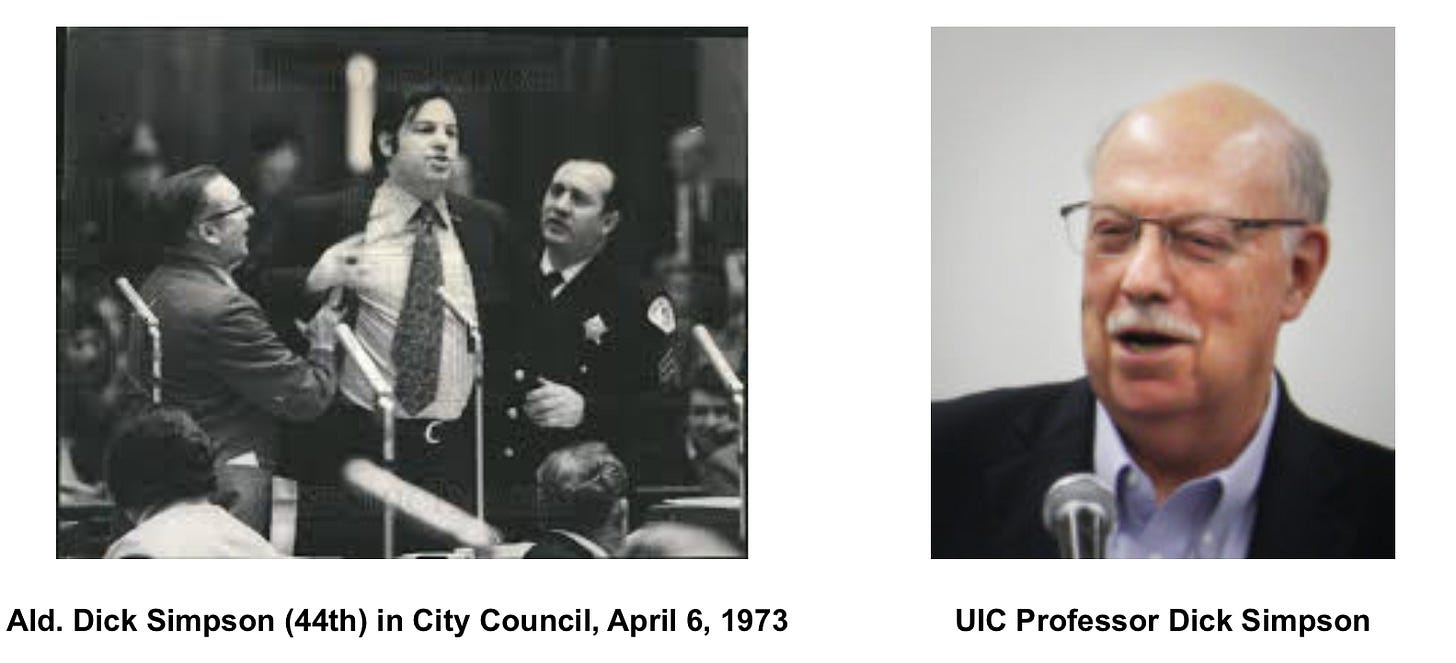

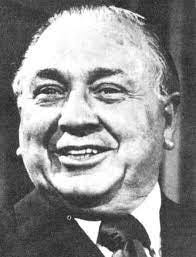

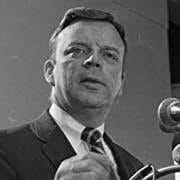




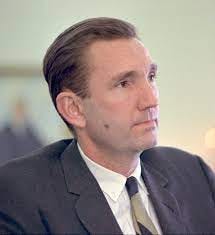
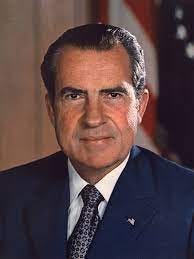





Newberry Library has complete collection of Royko's columns. Had a small exhibit on him last year.
I just wish that exhibit was twice as big! I'm unreasonable that way.